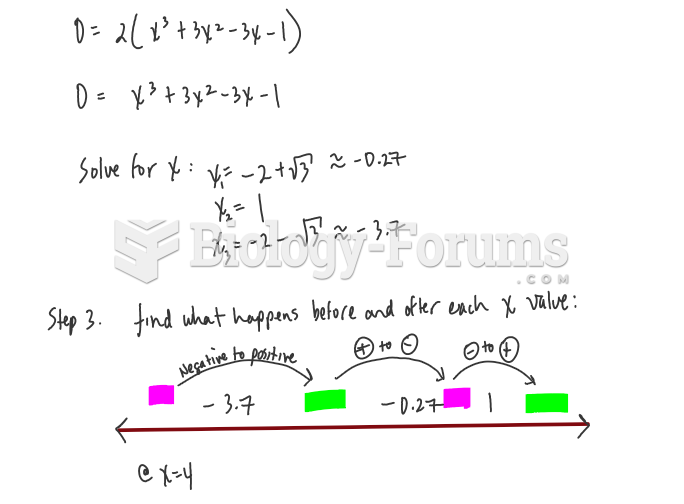|
|
|
Drug abusers experience the following scenario: The pleasure given by their drug (or drugs) of choice is so strong that it is difficult to eradicate even after years of staying away from the substances involved. Certain triggers may cause a drug abuser to relapse. Research shows that long-term drug abuse results in significant changes in brain function that persist long after an individual stops using drugs. It is most important to realize that the same is true of not just illegal substances but alcohol and tobacco as well.
The term pharmacology is derived from the Greek words pharmakon("claim, medicine, poison, or remedy") and logos ("study").
Persons who overdose with cardiac glycosides have a better chance of overall survival if they can survive the first 24 hours after the overdose.
About 100 new prescription or over-the-counter drugs come into the U.S. market every year.
More than 30% of American adults, and about 12% of children utilize health care approaches that were developed outside of conventional medicine.
 When the United States gets stuck over a controversial issue—usually something a divided Congress ca
When the United States gets stuck over a controversial issue—usually something a divided Congress ca
 Sixteen-pin OBD II DLC with terminals identified. Scan tools use the power pin (16) ground pin (4) ...
Sixteen-pin OBD II DLC with terminals identified. Scan tools use the power pin (16) ground pin (4) ...





